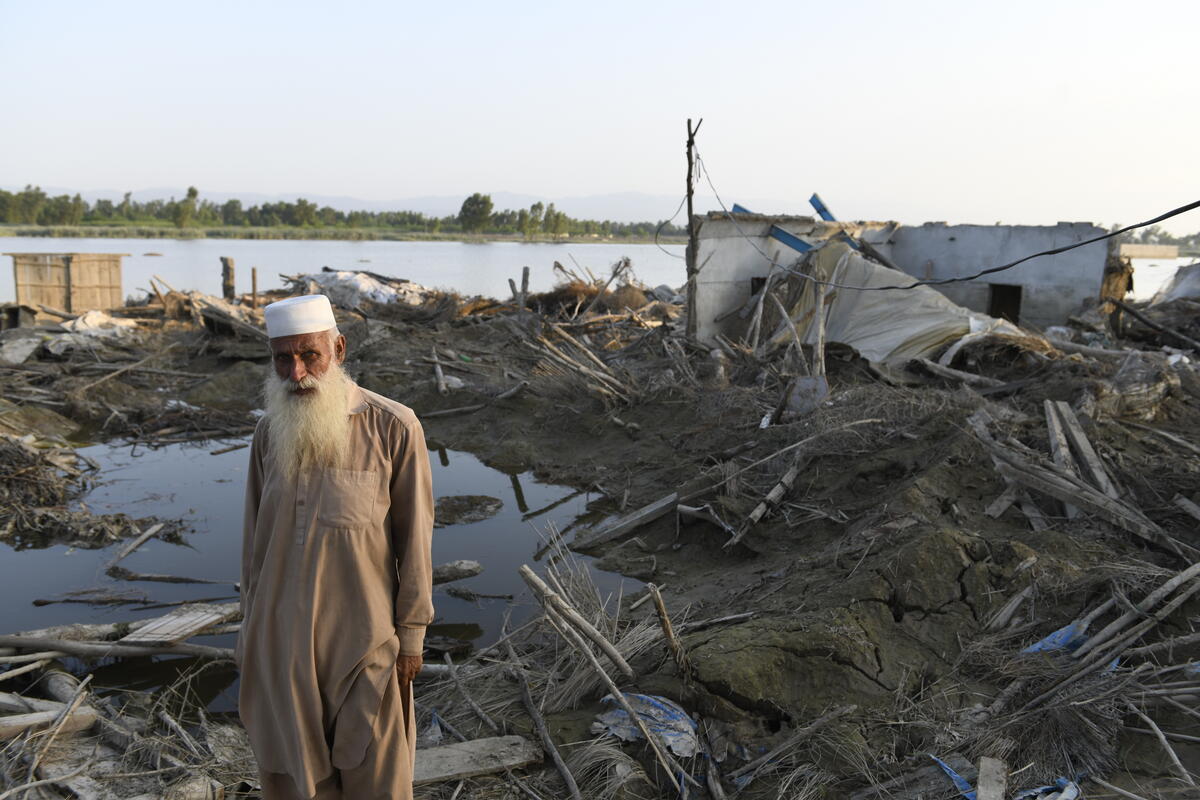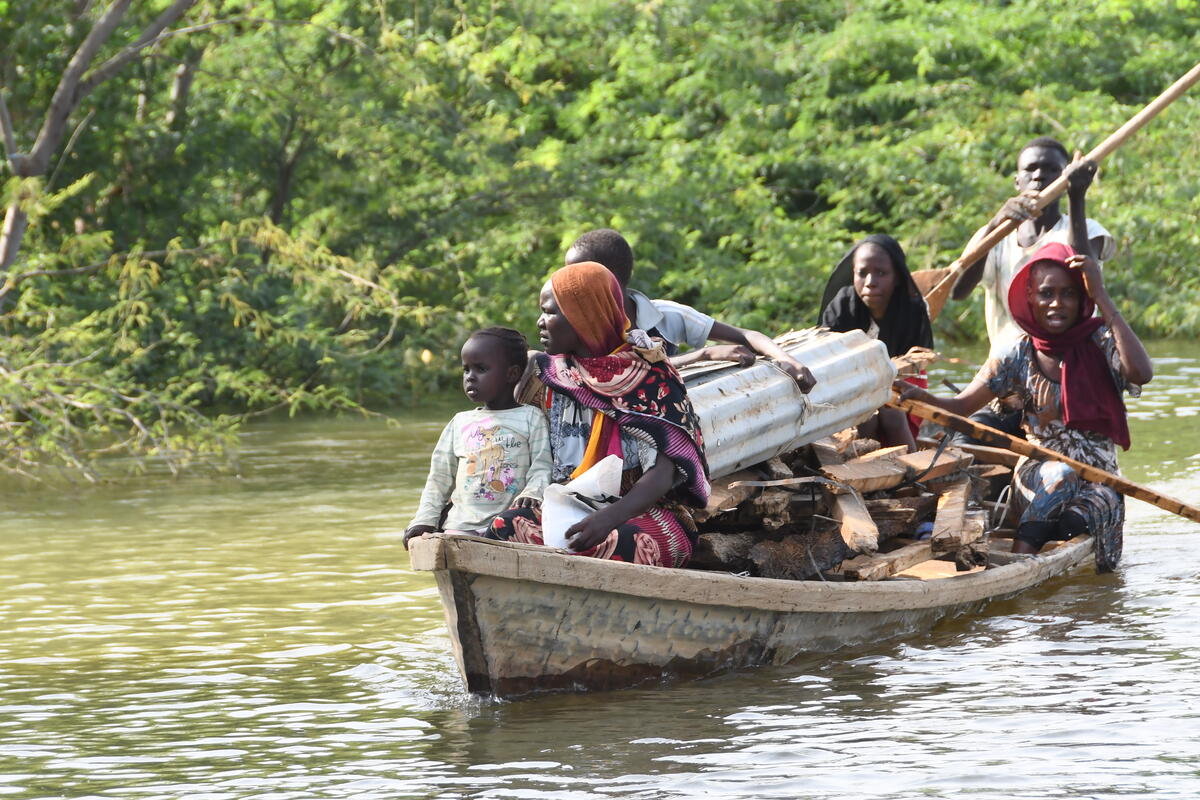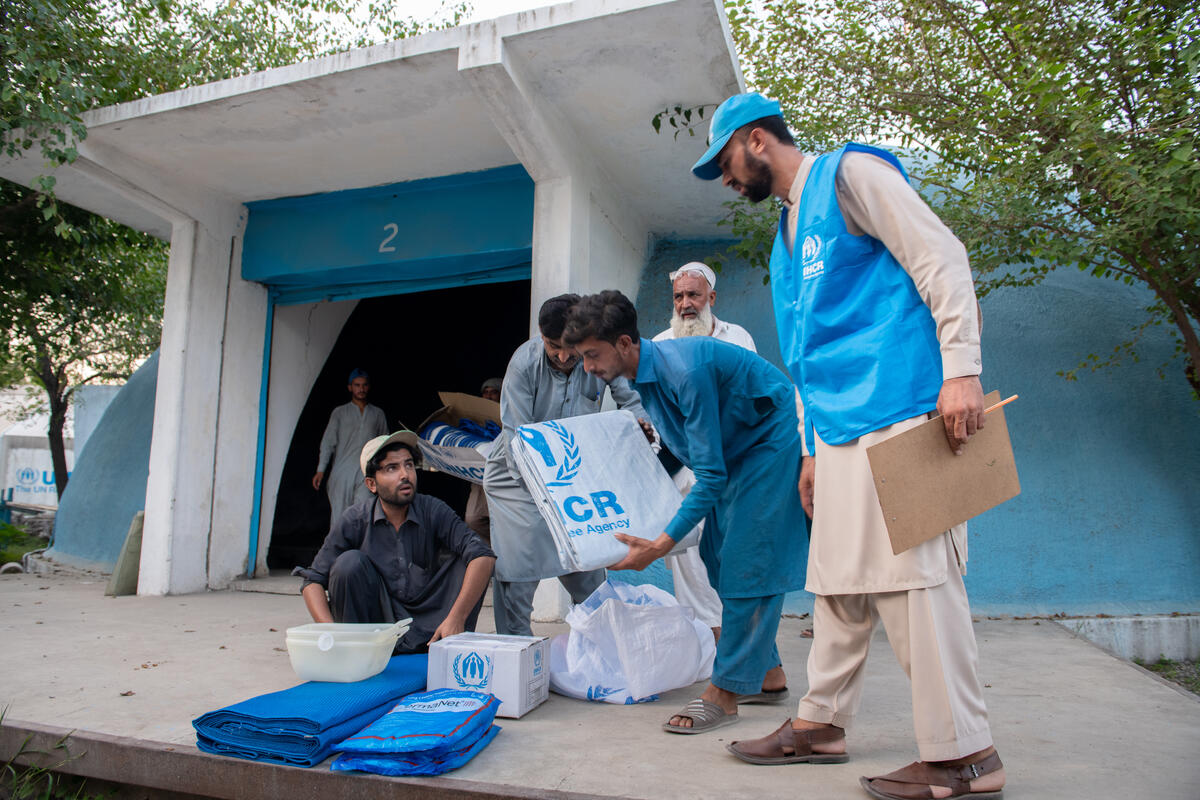UNHCR asks donors for US$17 million to help Pakistan's displaced
UNHCR asks donors for US$17 million to help Pakistan's displaced

ISLAMABAD, Pakistan, September 23 (UNHCR) - The UN refugee agency on Tuesday launched an appeal for more than US$17 million to help tens of thousands of people displaced by conflict and floods in north-western Pakistan.
The agency has urgently distributed supplies to some 84,000 affected people, and the agency is supporting the authorities in the areas of emergency shelter, registration and camp management.
"UNHCR, in a joint effort with other UN agencies in Pakistan, is committed to assist the displaced population in coordination with the government-led relief operation," said Michael Zwack, UNHCR's deputy representative in Islamabad.
According to government figures, there are now an estimated 90,000 internally displaced people (IDPs) in Pakistan's North-West Frontier Province (NWFP) due to fighting in the tribal areas bordering Afghanistan.
Another 90,000 are believed to be displaced in Swat in northern NWFP. In addition, some 84,000 people were displaced by floods in August. The numbers are fluid as people come and go from their villages, but they are expected to increase as the conflict intensifies.
UNHCR is the lead agency for shelter, camp management and protection under the UN response to this humanitarian emergency.
About 28,000 IDPs are living in nine government camps in NWFP. UNHCR has trained the authorities on how to register them in order to establish a profile of the displaced population and identify those with special needs, such as unaccompanied children, female-headed households or the elderly.
Registration started this Monday in the accessible camps. The majority of IDPs, who live with host families, will be registered after the Muslim Eid holidays in early October.
Many of the official camps are located in government schools and lack proper facilities to accommodate the IDPs. The government has identified the former Afghan refugee village of Katcha Gari in Peshawar as an alternative site. Site planning is under way to set up the necessary facilities, including shelter, water and sanitation facilities, education and health care.
At the outset of the emergency last month, UNHCR emptied its warehouse in Peshawar and distributed tents, plastic sheets, blankets and kitchen sets to 12,000 families, or some 84,000 individuals. The agency is now replenishing its stocks and preparing to distribute more relief items to the IDPs.
UNHCR's Zwack said the agency was only too happy to help with emergency relief supplies and technical expertise, noting that "Pakistan has been a kind host to millions of Afghans for nearly three decades."
To meet continuing needs, UNHCR has appealed for US$17.2 million under the UN's US$54 million humanitarian response plan for the situation in Pakistan.
The UNHCR budget covers the provision of non-food relief items to 310,000 displaced people, registration, site planning and development, as well as camp management, community services and initial winterization in the camps. The UN appeal will be revised based on the needs on the ground.








